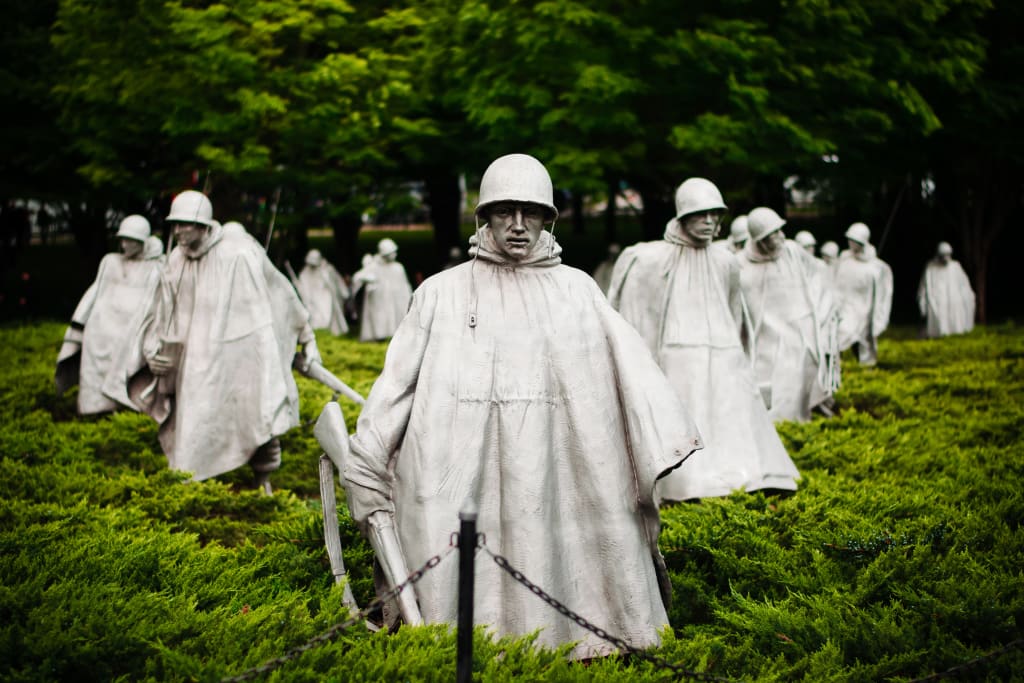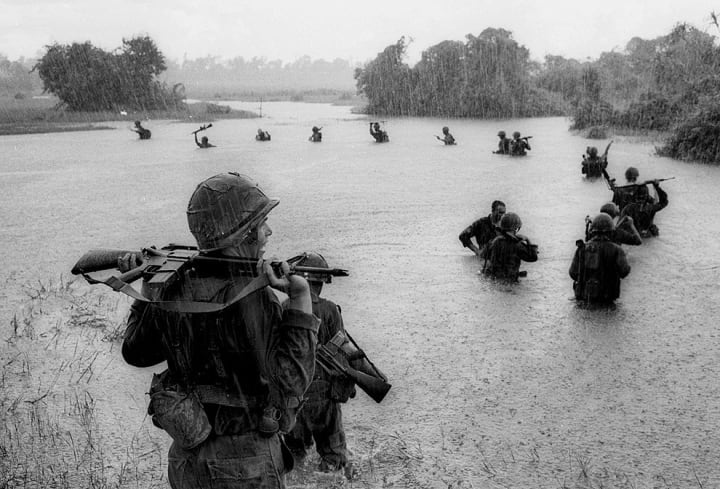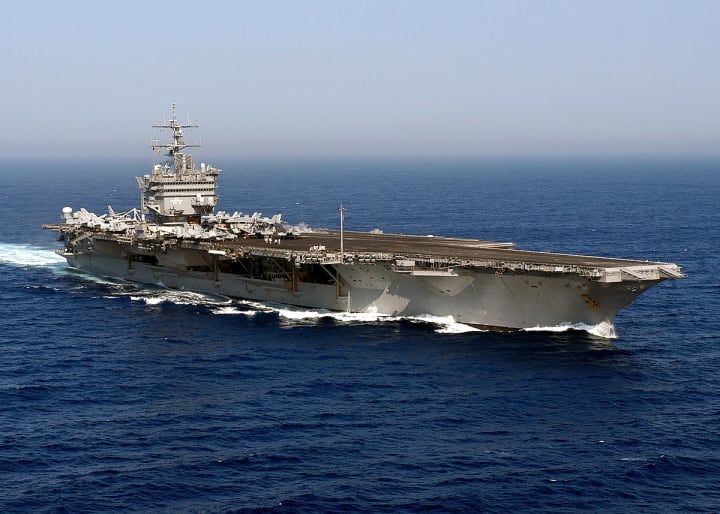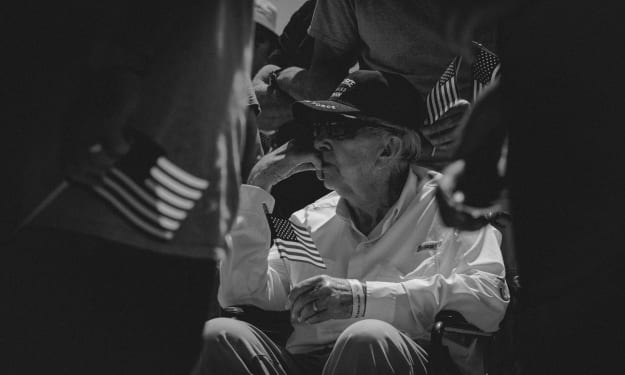10 Superstitions You'll Hear About in the Armed Forces
Forged in the fire of chaos, many superstitions you'll hear about in the armed forces are reinforced by perceived cause and effect relationships.

When people are put through stress or trauma, they often look to superstitions as a defense mechanism. We let these superstitions inform the way we live and interact with the world around us. Because of this, in the stressful life of military combat, soldiers will often cling to ideals of good or bad luck. Like elite savant baseball pitchers, soldiers will hold true to charms and rituals out of compulsion. Forged in the fire of chaos, these beliefs are reinforced by perceived cause and effect relationships.
Whether an actual physical token always remembered before you leave the house, or a compulsion, these superstitions run deep. The amount of belief soldiers have in these traditions varies greatly on the amount of time they have spent in active duty. From hats left in the hamper to leaving on a Friday, the American military has many interesting and confounding superstitions, whether you ask someone in the Army, Navy, Marines, or Air Force. Although, or possibly because, military members face far more stress and danger than civilians, they are often deeply superstitious. Consequently, it is little surprise that there are, in fact, many superstitions you'll hear about in the armed forces.
Don't eat the candy.
Of all the superstitions you'll hear about from service members, this is likely going to make the least sense to outsiders. As you may know, soldiers in the armed forces are often given food packages known as MREs (meal ready to eat). These MREs are packaged to be eaten in a hurry and on the go. Though you would expect soldiers to devour every last bit of this "food," there is one surprising food item they are afraid to touch. For reasons not entirely clear, the Charms candies that are often included in the MREs are considered to be bad news. Rather than being a "charm" of good luck, soldiers believe that these candies bring quite the opposite when eaten. To further add to the strangeness of this fear, the green pieces are thought to be especially unlucky. Eating these candies while on patrol is thought to cause bad weather.
Marine scout snipers wear a "HOG's tooth" around their neck.

A Real Marine HOG's Tooth.
In the military, it is understandable that bullets and other combat items might become objects of superstition. This things all recruits should know before becoming a sniper is explained as there being two levels or ranks of a scout sniper, the first being a professionally instructed gunmen (or PIG). At the top level of scout sniper ranks, known as a hunter of gunmen or "HOG," snipers would wear a bullet on a necklace around their neck that they referred to as a "HOG's tooth." The idea behind this superstition is that "there is a bullet for everyone, and they have their name on it." To further the superstition, the bravest are those who procure their HOG's tooth from the magazine of their enemy counterparts, after taking them down personally. The bullet is seen as a token of good luck and an intimidation tactic against opponents.
Do not carry white lighters.
This superstition will likely be familiar to the readers, especially if you are a child of the 1990s or a conspiracy buff. This is perhaps one of the great rock and roll superstitions and legends of the internet age. As many alleged, Kurt Cobain and many other dead rock stars were found at the age of 27 with white lighters on their person (though this is mostly discredited for a variety of reasons). Well, it just so happens that this habitual fear and general distrust of white lighters is also held by a number of service members. This fiery superstition was spread with the story of an amphibious vehicle plunging out of control off a cliff. As the rumor dictates, one of the occupants was carrying a white cigarette lighter. Ironically, the legend also states that another occupant of the vehicle was carrying a horseshoe, though this was evidently of no help.
Don't say rain.

Like the charm candy tradition, this superstition also involves fear of inclement weather. In a job where your duties must go on regardless of the weather outside, there is an especial aversion to precipitation. As such, one of the things you should know about before meeting a military recruiter is that service members will likely take any perceived mental advantage they can over the rain. Many soldiers are frequently forced to trek through brutal weather to perform their duties. In the field, soldiers hope for as little foul weather as possible for this reason. Unsurprisingly, this means that the word rain itself is considered to be a bringer of bad luck. Like the old Bloody Mary myth, if you say it, it will appear and ruin your day. Consequently, soldiers are inclined to avoid saying rain whenever possible, believing that even the finest of weather could turn to nasty showers if the word is even spoken.
A red sky at night is a sailor's delight.
There are many superstitions that we are all familiar with that most people don't realize came from the military. Chances are you have heard the old addage "Red sky at night, sailors delight. Red sky at morning, sailor take warning." Though this is a pretty well-known colloquial saying in civilian life, the expression interestingly has military origins. As the sailor reference may suggest, this superstition has roots in the Navy. Being at the mercy of the seas with little knowledge of weather, early sailors looked to the sea and skies for signs of bad and good luck. Believing the red sunset to be a sign of good weather to come and the red sunrise as a harbinger of stormy conditions, sailors would ready themselves for the seas ahead accordingly. This belief held a great deal more weight and importance in the distant past, when sailing ships were incredibly vulnerable to the weather conditions.
There are key-shaped patterns in digital camouflage.

Modern digital camouflage fabric, as used by the U.S. Army.
For many decades, service members have relied on camouflage to make their uniforms less visible. For the most part, the shapes and patterns seen in camouflage are relatively amorphous and blob like. Even with digital camo, the geometric patterns tend to be mostly random in shape and distribution, pixelated as they may be. However, today's digital camo supposedly contains the frequent occurrence of a form in the fabric print that is closely akin in shape to a common house key. While at first glance this geometric pattern just seems like an interesting observation, much like interpreting the shape of rock formations or passing clouds, there is, in fact, a military superstition surrounding these incidental shapes. As the legend goes, many soldiers supposedly took bullet wounds that penetrated these key shapes on their clothing, leading to a dark mythology them. With any luck, the introduction of new camouflage patterns will eliminate this fear.
Never wash the coffee mugs.
As has been previously noted, there are many parallels to be drawn between military superstitions and those of athletes. Just as some players will wear a single hat for good luck during an entire season, accumulating sweat and dirt, Navy sailors believe it is bad luck to wash coffee mugs. As unsanitary as it may seem, this superstition is taken very seriously and can warrant disciplinary action for the perpetrator. Though the connection and significance has clearly been long lost to the ages, as is the case of many Naval myths, sailors believe that the innocuous act of washing a coffee mug would cause Neptune to claim your ship. This superstition is in keeping with the longstanding tradition of associating classical mythology with the forces of the sea, one that is alive and well in the Navy and other maritime communities today.
Don't set sail on a Friday.

Originating from a time when ships were far more vulnerable to the elements and the weather, the Navy has a number of navigational superstitions. While those pertaining to wind and waves are less of a concern today, some have persisted; and oddly enough, they are mostly the ones that never really held any tangible threat to these service members. For unclear reasons, some of these beliefs have persisted to this day. One such strange remnant is the thought that it is bad luck to set sail on a voyage on a Friday. The enduring nature of this and other similar Naval beliefs is largely due to the history of danger and uncertainty that was part of traveling the high seas for so many centuries. In such a life, caution and paranoia become ruling factors that must be accepted to some degree.
Flowers are bad news.
Unlike the mystifying Naval coffee mug protocol, this superstition is pretty easy to understand and rationalize. The Navy has many beliefs on what items and actions will bring about bad luck on board of a ship. By and large, most sailors believe that it is bad luck to have flowers on board a ship. Because flowers are associated with funerals and funerary arrangements, sailors believe that having them on board be a sign of impending tragedy. When you really consider all the facts, this fear, while irrational, is highly relatable and understandable. In a line of work where death is such a real and frightening prospect, any subtle reminder of mortality or danger can be emotionally triggering or taxing, and therefore seems like bad luck in moments of profound anxiety and stress.
Be really careful around the flag.

As important and respected as the flag is in American society at large as a symbol of our country, it is practically worshiped as a deity by service members in the US armed forces. Consequently, there are all manner of rules on how to handle the flag, how to properly fold it, and what things to never, ever do to a flag. While such attention to detail is largely a teaching aspect of the moral code espoused by the military, this strictness of flag handling is meant to fall in line with the military's overall training messages and objectives. However, the American flag is not immune to superstitions surrounding its handling and respect in the military. The most commonly known belief is that it is bad luck (and disrespectful) to let the flag touch the ground. Similarly, it is bad luck to climb a ladder if it is situated over a flag. Of all superstitions you'll hear about in the armed forces, few other interesting military traditions are as strictly held as those around the flag.
About the Creator
Fred Eugene Park
Fred Park is a writer, singer and guitarist with a deep passion for music, sports and history. Fred graduated from Purchase College in 2016 with a BA in history.






Comments
There are no comments for this story
Be the first to respond and start the conversation.